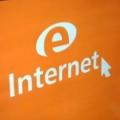Internet Goes Transparent - Literally
A long time ago on American television, each episode of a dramatic series about New York City closed with an announcer intoning, "There are eight million stories in the Naked City. This has been one of them." Well, there are eight million times eight million stories on today's Internet. And more and more of them seem to involve people eager to lay their whole lives before the world. A "Web of exhibitionists," Robert Samuelson calls them in a column in the Washington Post. Fifty-six million Americans have accounts on a Web site called "MySpace-dot-com." Nine million more college and high-school students expose themselves, sometimes literally, on a site called "Facebook." These are platforms for people to explain how they perceive themselves, to show off one talent or another, or to vent about politics, their bosses, or anything they please. This has got more than a few people in trouble at work. And the explicit way in which some people reveal themselves has turned these Web sites into fertile hunting grounds for sexual predators.
A survey just completed by the Pew Internet and American Life Project of what the researchers call "technology thinkers" found that, in those 742 thinkers' opinions, people will, as the survey puts it, "wittingly and unwittingly" disclose even more about themselves in the future. Quoting again, "Everything will be more visible." In other words, we may be heading for a world in which old concepts of privacy will be challenged by our quest for celebrity and even fleeting fame, the kind often gained by doing stupid things to get attention. "Transparency," it's called: the literal transparency of a cyber-glass house, into which anyone and everyone is invited to peek on the Internet today's truly Naked City.

